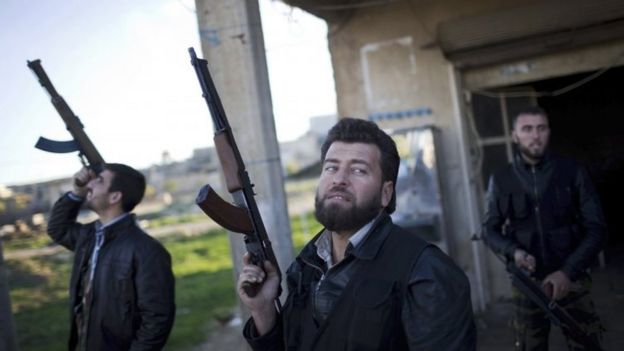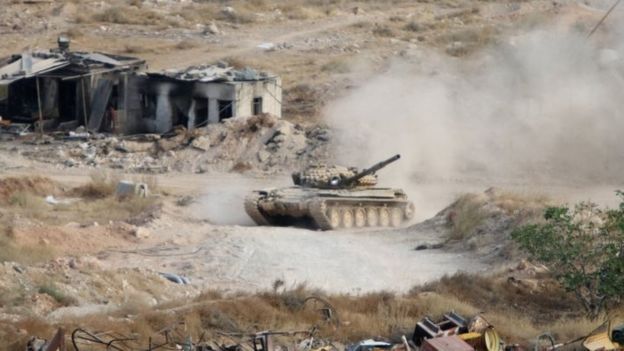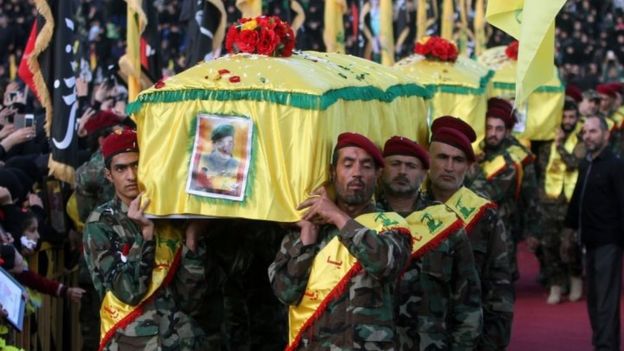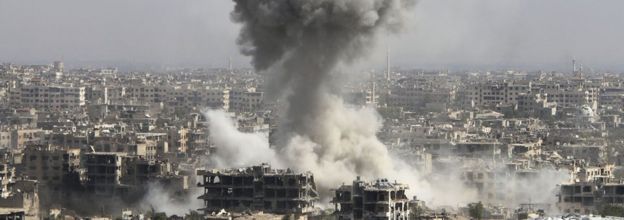US signals shift in Syria-Iraq campaign against Islamic State
BY BBC News
The US has indicated a shift in its campaign against Islamic State (IS) militants in Iraq and Syria, including the use of direct ground raids.
Defence Secretary Ashton Carter said there would also be more air strikes against "high-value targets". Observers say his comments reflect acknowledgment of the lack of progress in defeating the militant group.
Separately, Iran says it is considering whether to attend international talks in Vienna this week on Syria's war.
Earlier, the US said Iran - an ally of Syria's President Bashar al-Assad - was being invited to the talks for the first time.
Foreign ministry spokeswoman Marzieh Afkham said "Iran's participation is under discussion", Iranian news agencies reported.
Mr Carter's comments, made to the Senate Armed Services Committee, come a week after US-Iraqi forces rescued dozens of hostages held by IS in Iraq.
Analysis by Jonathan Marcus, BBC defence correspondent
Russia's intervention in Syria has changed the military and diplomatic dynamic in the crisis and left Washington struggling to catch up.Whatever the inconsistencies in Moscow's own policies, it has highlighted the deficiencies in Washington's approach - not least the collapse of its ailing train-and-equip programme for Syria that was largely going nowhere.
US Defence Secretary Ashton Carter wants a more active US strategy, but this inevitably runs counter to the prevailing mood in the White House.
Barack Obama, after all, has cast his presidency as one that will withdraw US troops from foreign wars, not engage in new ones. There is talk of deploying a small number of Apache attack helicopters to Iraq.
That could involve hundreds of extra US personnel. But US success still requires effective local allies on the ground and they are in short supply.
"We won't hold back from supporting capable partners in opportunistic attacks against ISIL or conducting such missions directly, whether by strikes from the air or direct action on the ground," Mr Carter said, using an alternative acronym for IS.
"We expect to intensify our air campaign, including with additional US and coalition aircraft, to target ISIL with a higher and heavier rate of strikes," he said.
"This will include more strikes against ISIL high-value targets as our intelligence improves."

Although President Obama has not committed ground forces to Iraq, the US has about 3,500 troops in the country who have been helping to train Iraqi forces and also have a limited combat role.
Russia started its own air strikes in Syria at the end of last month, saying it wants to help President Bashar al-Assad defeat IS and other extremists.
But Washington has strongly criticised the Russian campaign, arguing that it has been focused on rebel opposition fighters and that it will only fuel more extremism.

He did not divulge the circumstances under which the US might carry out operations on the ground on its own.
"[But] once we locate them, no target is beyond our reach," he said.

Friday's talks could also include officials from Egypt, Iraq and Lebanon.
Kremlin spokesman Dmitry Peskov called for a "widening of the dialogue" on Syria, when he spoke to reporters on Wednesday.
Iran is believed to have spent billions of dollars over the past four years propping up President Assad's government, providing military advisers and subsidised weapons, as well as lines of credit and oil.
It is also thought to have been influential in the decision of Lebanon's Hezbollah movement to send fighters to Syria to assist pro-Assad forces.
Syria's Western-backed opposition and the US's Gulf Arab allies have long opposed Iran's role in the Syrian war.
BBC diplomatic correspondent James Robbins says that while Washington is certainly not welcoming Iran to the Syria talks, it will now tolerate Tehran's involvement.

Anti-government protests developed into a civil war that, four years on, has ground to a stalemate, with the Assad government, Islamic State, an array of Syrian rebels and Kurdish fighters all holding territory.
Who is fighting whom?
Government forces concentrated in Damascus and the centre and west of Syria are fighting the jihadists of Islamic State and al-Nusra Front, as well as less numerous so-called "moderate" rebel groups, who are strongest in the north and east. These groups are also battling each other.
What's the human cost?
More than 250,000 Syrians have been killed and a million injured. Some 11 million others have been forced from their homes, of whom four million have fled abroad - including growing numbers who are making the dangerous journey to Europe.
How has the world reacted?
Iran, Russia and Lebanon's Hezbollah movement are propping up the Alawite-led Assad government, while Turkey, Saudi Arabia and Qatar back the more moderate Sunni-dominated opposition, along with the US, UK and France. Hezbollah and Iran are believed to have troops and officers on the ground, while a Western-led coalition and Russia are carrying out air strikes.


0 Comments:
Post a Comment
Subscribe to Post Comments [Atom]
<< Home